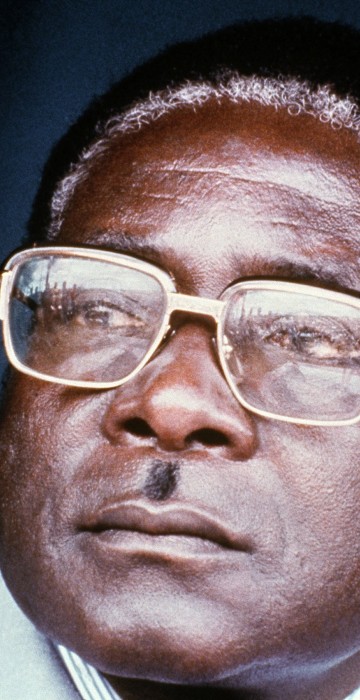
World
Robert Mugabe's life in pictures: From liberation hero to brutal dictator
A look back at Robert Mugabe's 37-year reign in Zimbabwe.
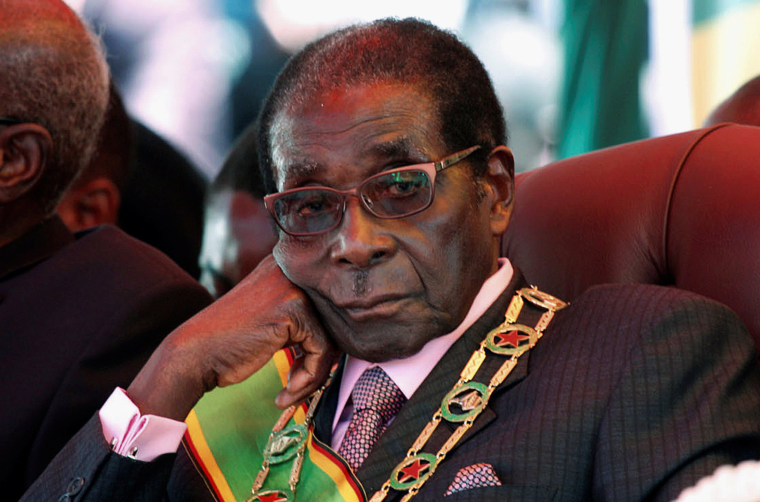
Robert Mugabe, the bush war guerrilla leader who led Zimbabwe to independence in 1980 and crushed his foes during nearly four decades of rule as his country descended into poverty, hyperinflation and unrest, died on Sept. 6, 2019, aged 95.
Above: Mugabe looks on during a rally marking Zimbabwe's 32nd independence anniversary celebrations in Harare in 2012. The country was formerly known as Rhodesia.
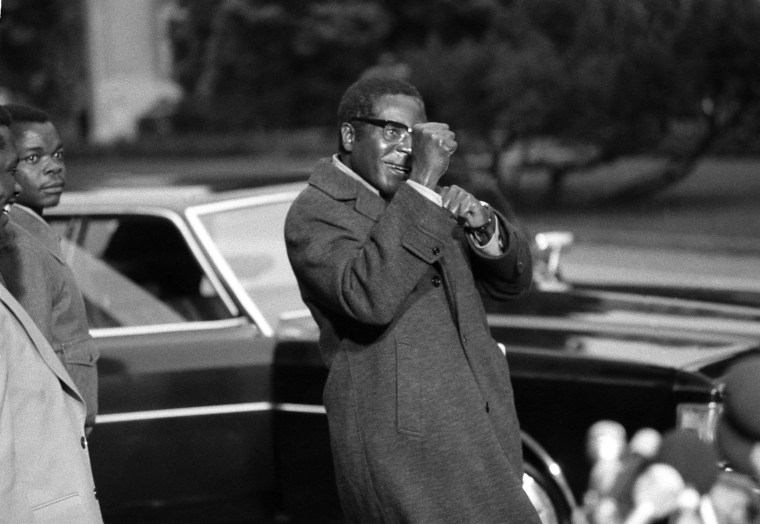
Mugabe jokingly puts up his fists as he encounters members of the media while taking part in a conference on Rhodesia in Geneva in 1974.
Mugabe entered politics in 1960 and was jailed for a decade four years later for opposing white rule.
After his release, he rose to the top of the powerful Zimbabwe African National Liberation Army. He was known as the "thinking man's guerrilla" on account of his seven degrees, three of them earned behind bars.
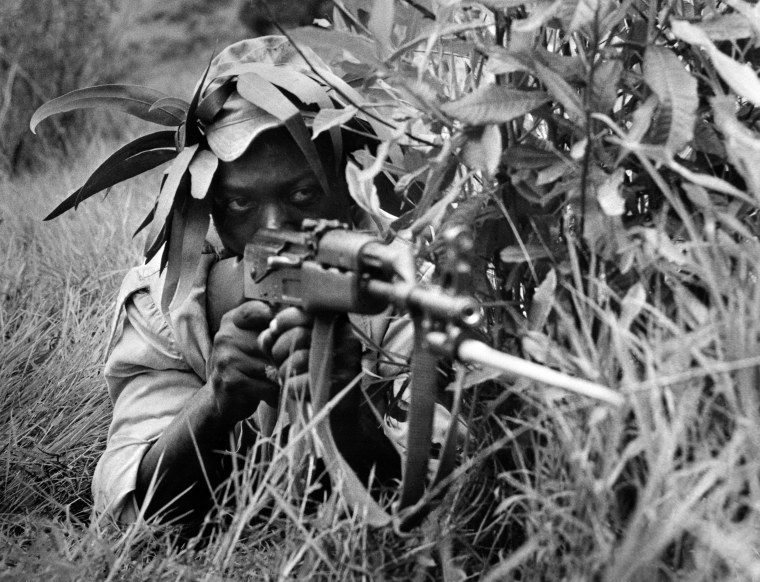
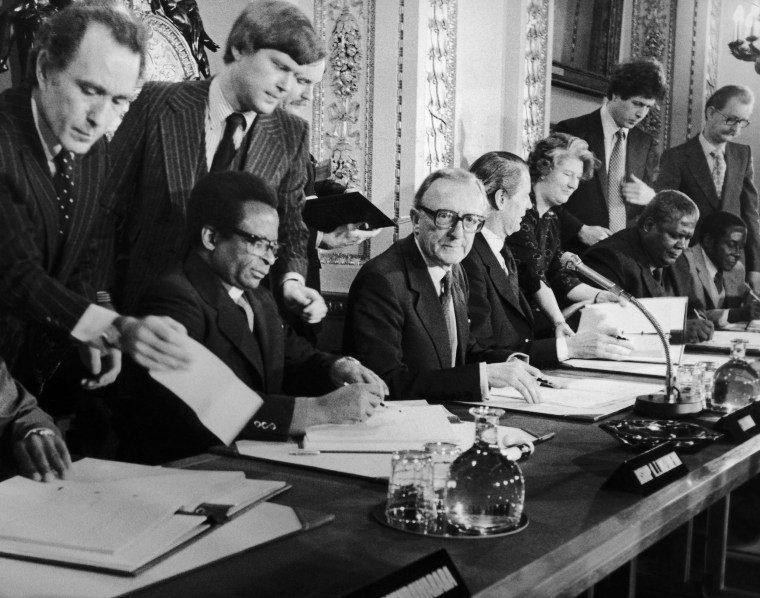
Mugabe, right, signs the Lancaster House agreement in London on Dec. 21, 1979, to end white rule in the former Rhodesia.
Others signing are, from left, Rhodesian Prime Minister Abel Muzorewa, British Foreign Secretary Lord Carrington, former Rhodesian Prime Minister Ian Smith and leader of the Patriotic Front Joshua Nkomo.
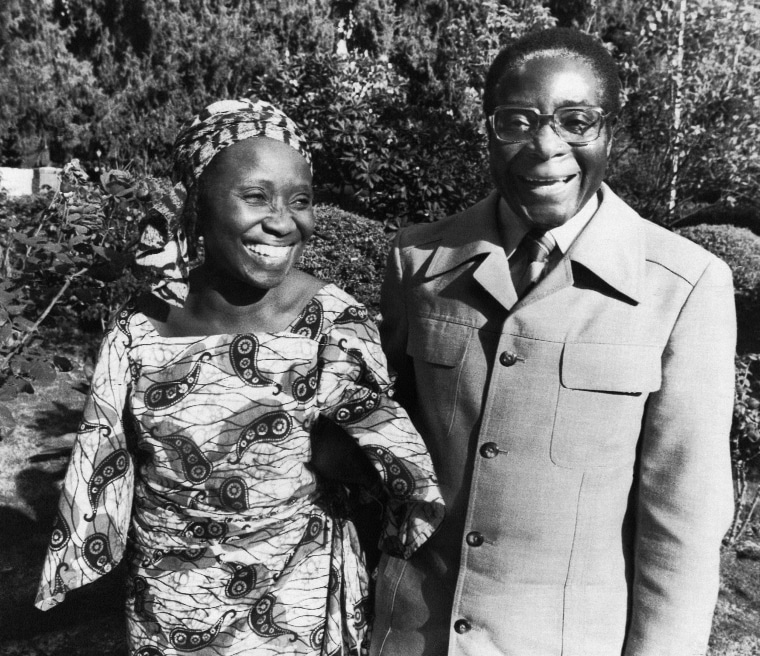
Mugabe and his Ghanaian wife, Sally, hold hands in the rose garden of their Salisbury bungalow in Zimbabwe on March 6, 1980.
Mugabe was taking a break as he worked at forming a government following his party’s landslide electoral victory. Mugabe became the country's first black prime minister.
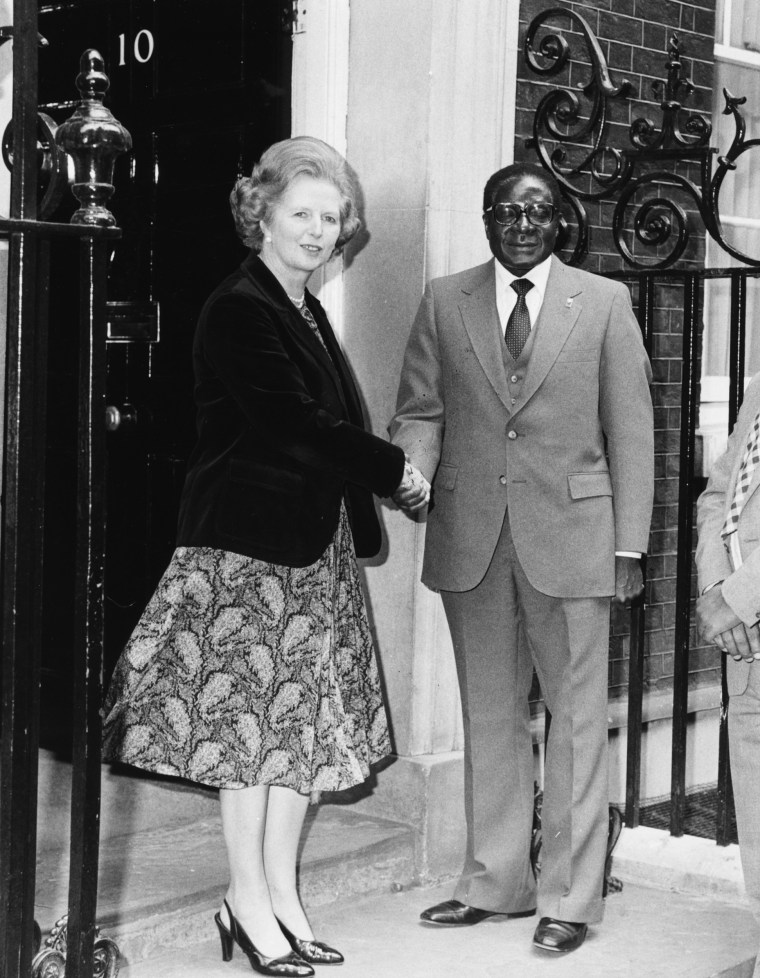
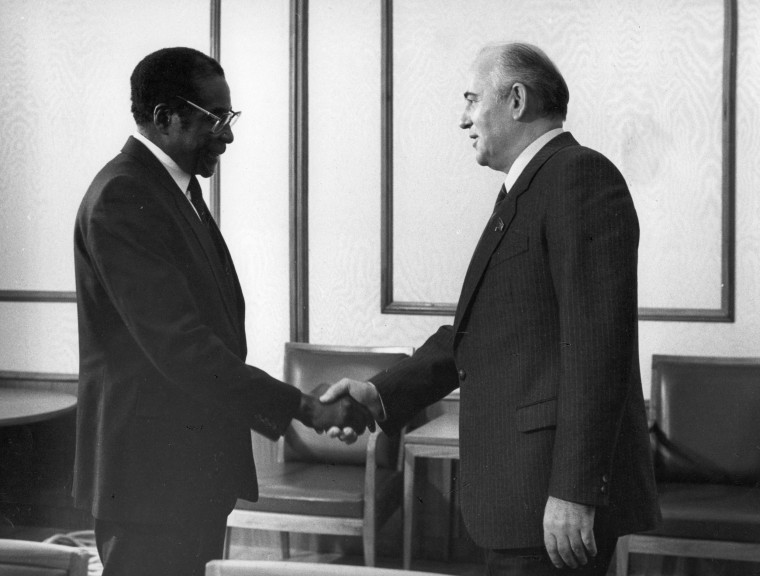
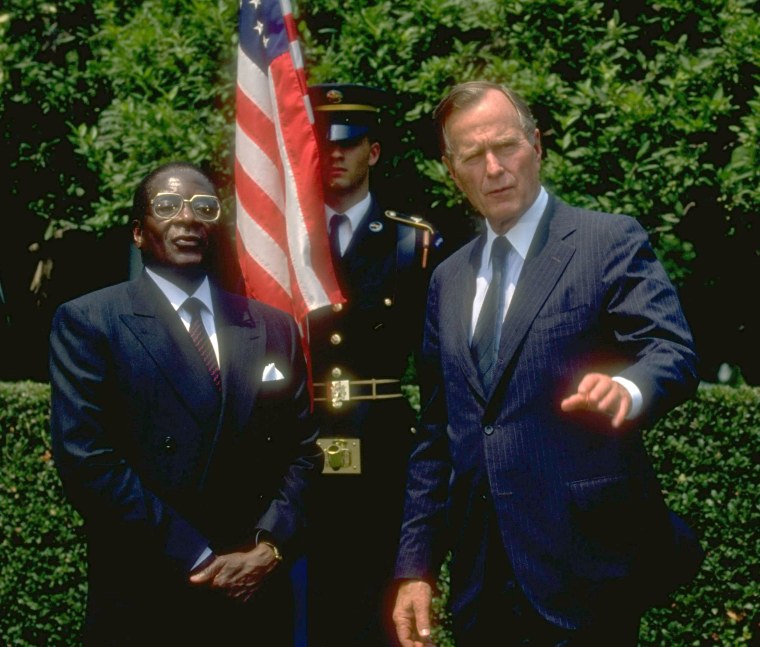
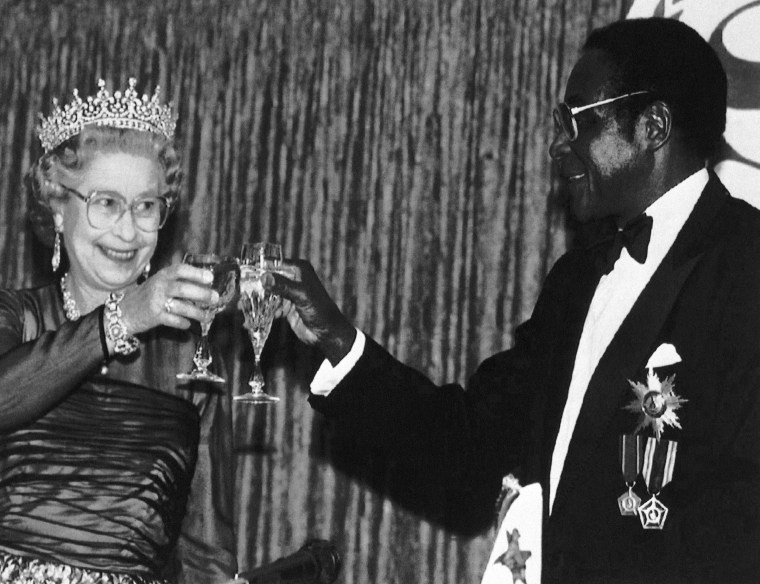
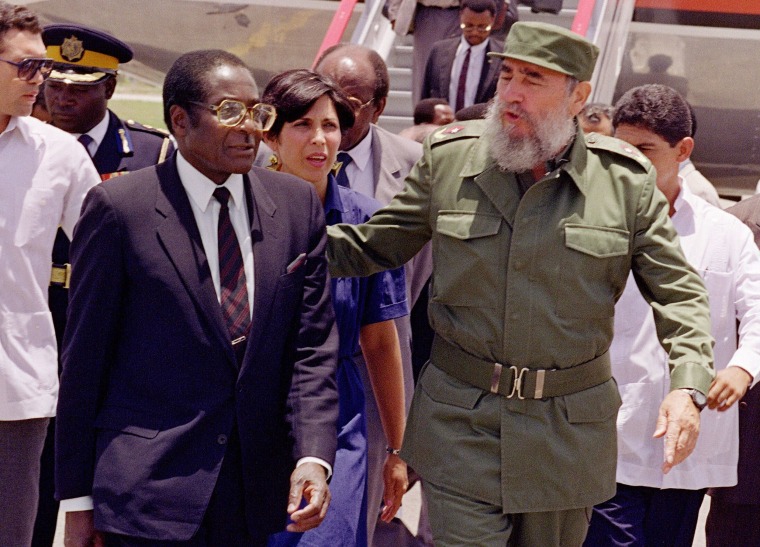
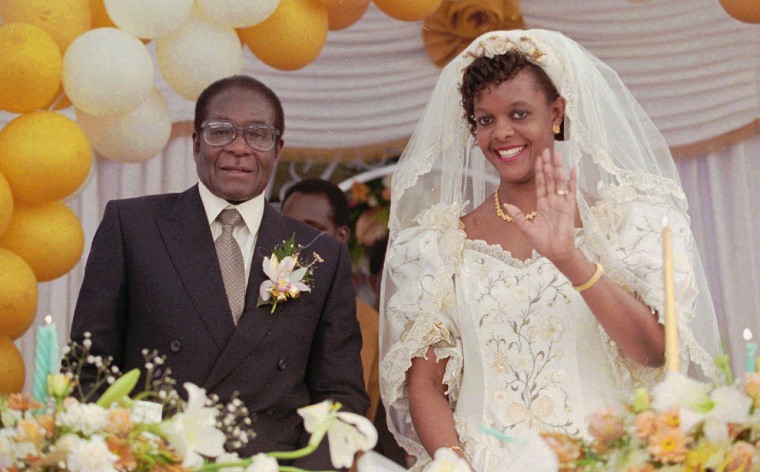
Grace Marufu and Mugabe wave at guests on Aug. 17, 1996, after their wedding ceremony at the Kutama Catholic mission.
Decades of disputes with the Roman Catholic Church apparently forgiven, Mugabe and his bride welcomed international dignitaries to their wedding Mass.
Mugabe's first wife died in 1990.
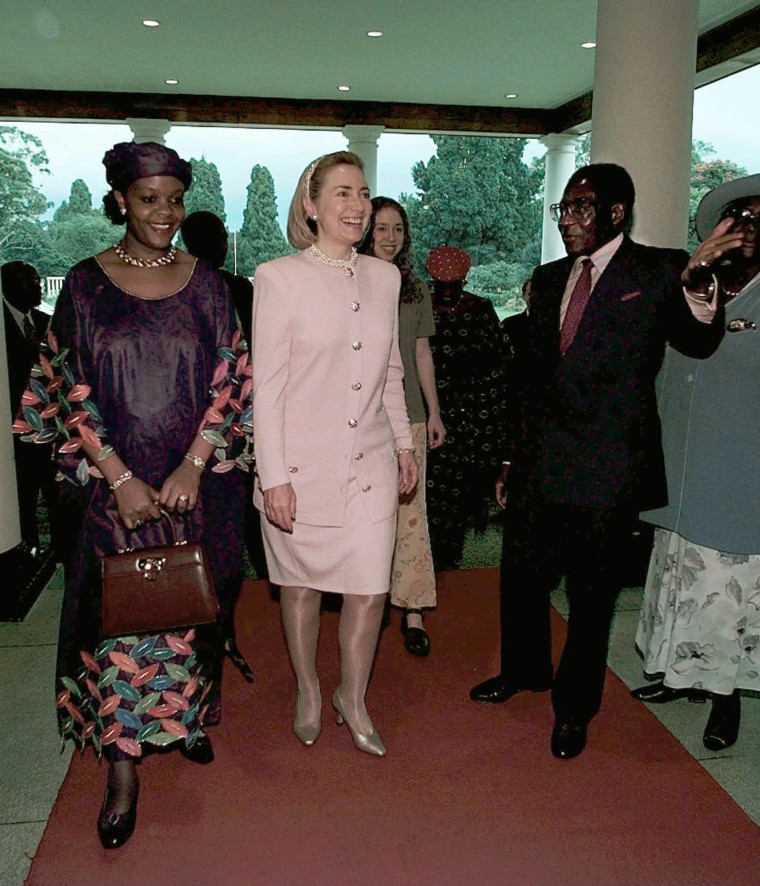
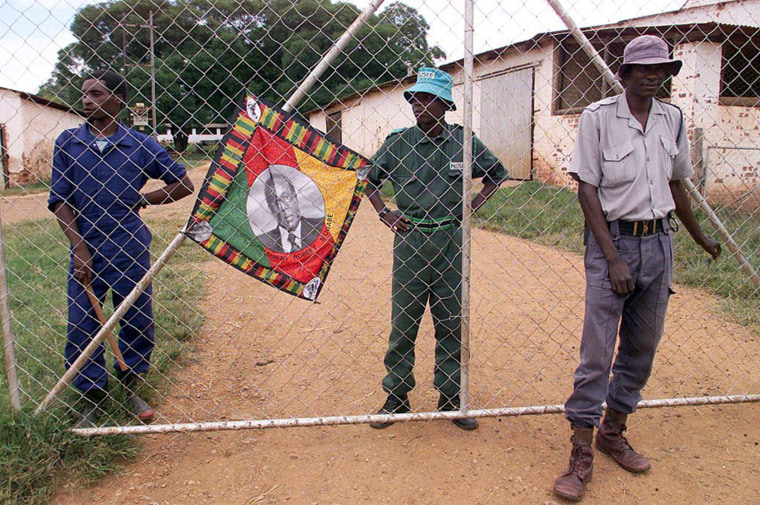
A picture of Mugabe hangs on the gate of the farm of an expelled white farmer as police and squatters stand guard in Mazowe, north of Harare, on April 10, 2000.
The farm was one of the farms across the country occupied by squatters calling themselves war veterans after the parliament passed a bill giving the government the power to seize white-owned land without paying compensation.
The farm seizures helped ruin one of Africa's most dynamic economies, with a collapse in agricultural foreign exchange earnings unleashing hyperinflation.
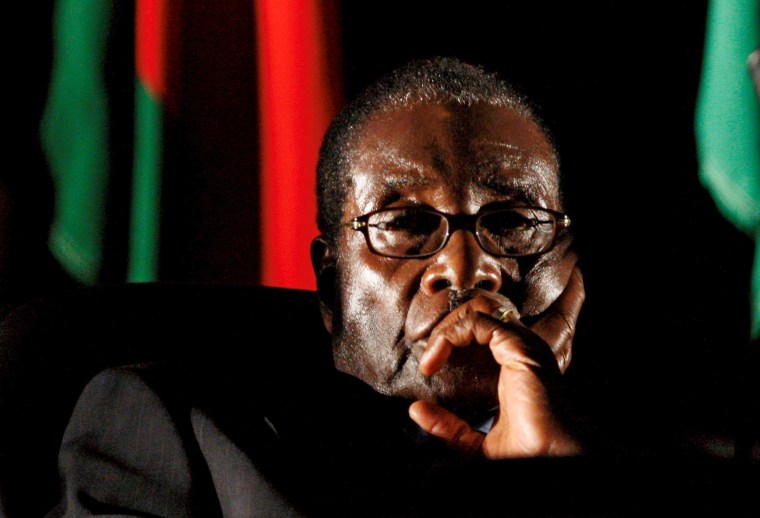
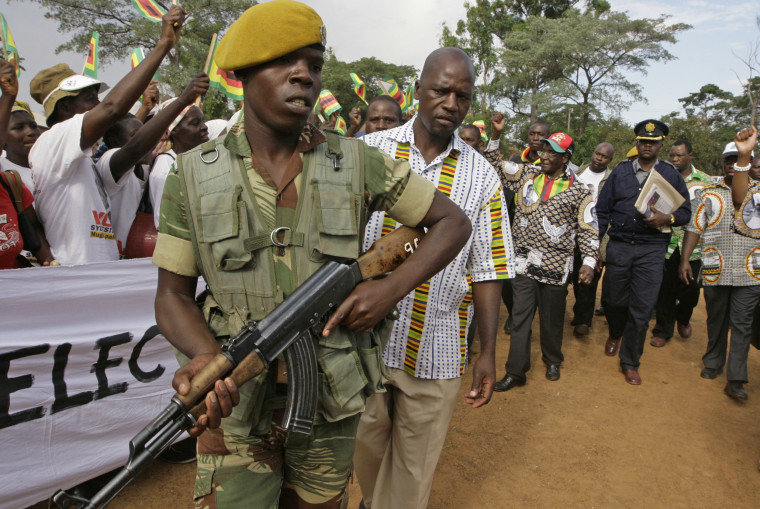
A soldier closely guards Mugabe, in red cap, upon his arrival at a rally in Mubayira, south of Harare, on March, 13, 2008.
The country hit rock bottom in 2008, when 500 billion percent inflation drove people to support the challenge of Western-backed former union leader Morgan Tsvangirai.
Facing defeat in a presidential run-off, Mugabe resorted to violence, forcing Tsvangirai to withdraw after scores of his supporters were killed by ZANU-PF thugs.
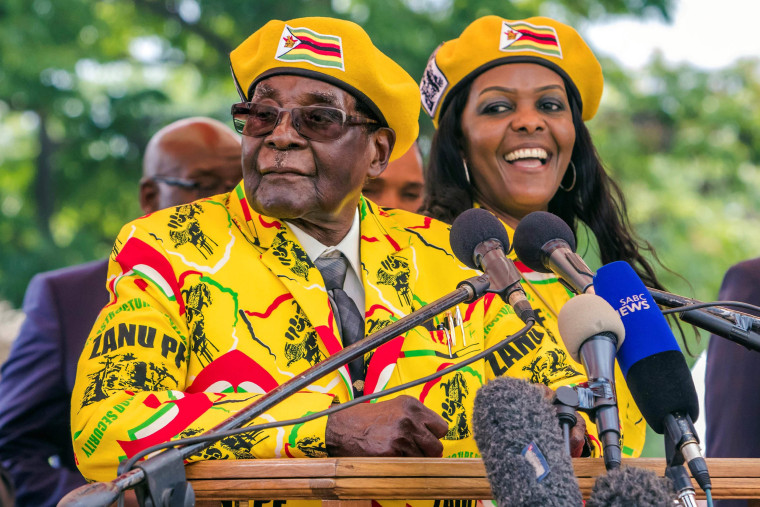
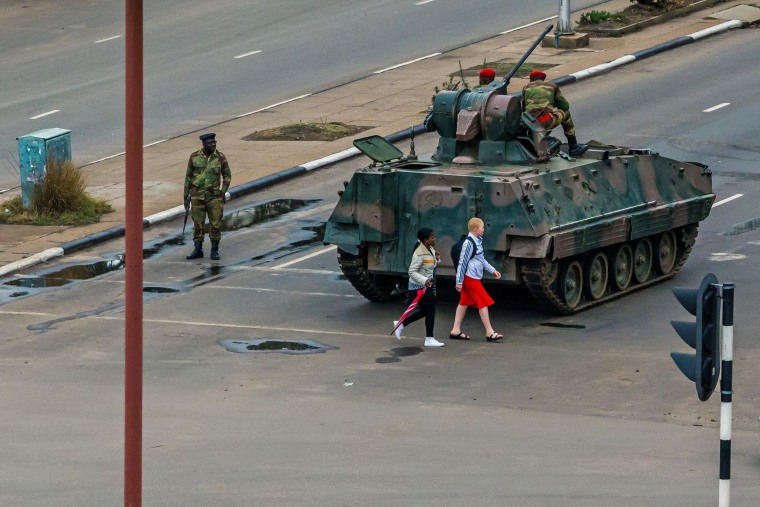
Young women walk past an armored personnel carrier as Zimbabwean soldiers regulate traffic in Harare on Nov. 15, 2017. The military appeared to take control of the country after the Army announced it had Mugabe and his wife in custody.
Related: Robert Mugabe dead at 95
